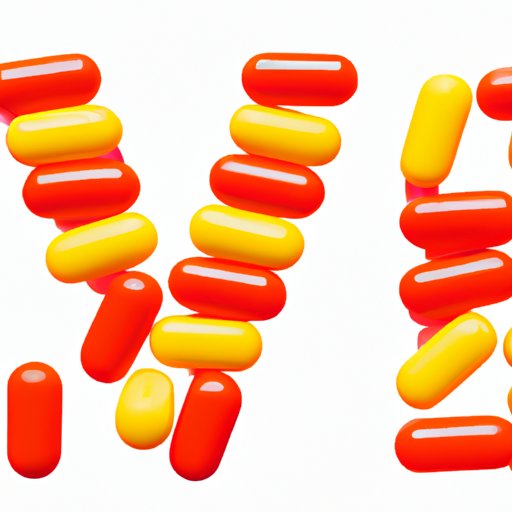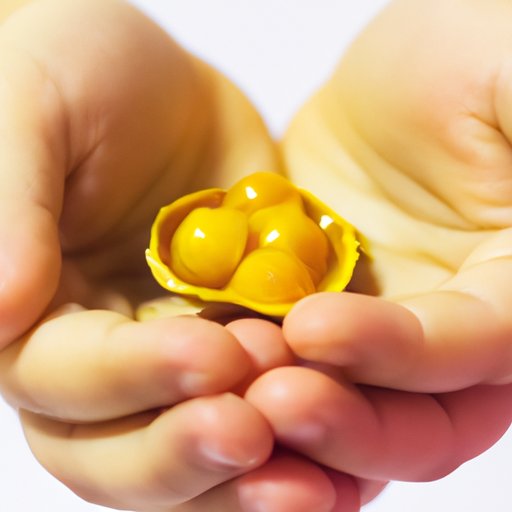
Introduction
Bruising is a common occurrence and happens when your body experiences trauma or injury. However, frequent or excessive bruising can be a sign of an underlying health issue, one of which is vitamin deficiency. This article will explore the different vitamins that contribute to the health of your skin and how a lack of these essential vitamins can lead to bruising.
Uncovering the Mystery: What Vitamin Deficiency Causes Bruising
Vitamins are essential micronutrients that our bodies need to function properly. There are several different vitamins that can contribute to bruising, including vitamins K, C, D, and E.
Why Vitamin K is Essential for Preventing Bruising
Vitamin K plays a crucial role in blood clotting, which stops bleeding and contributes to the healing of bruises. A deficiency in vitamin K can lead to excessive bleeding and bruising, even from minor injuries. Foods rich in vitamin K include leafy greens such as spinach and kale, as well as broccoli and brussels sprouts. Supplements can also be taken, but it is important to speak with your doctor about proper dosage.
The Importance of Vitamin C in Reducing Bruising
Vitamin C is essential in collagen production, which helps keep your skin and blood vessels healthy. A lack of vitamin C can lead to weaker blood vessels and more bruising. Foods high in vitamin C include citrus fruits, bell peppers, and strawberries. Supplements can also be taken, but it is recommended to get your daily intake through a balanced diet.
Vitamin D Deficiency: A Surprising Contributor to Bruising
Vitamin D is essential in bone health and immunity. Recent studies have shown that a deficiency in vitamin D can lead to more fragile blood vessels and therefore, more bruising. Foods high in vitamin D include fatty fish, egg yolks, and fortified dairy products. Supplements can also be taken, but it is important to speak with your doctor about proper dosage.

Healing Bruises with Vitamin E: The Science Behind It
Vitamin E is crucial for skin health and healing. It is also a powerful antioxidant that can help reduce inflammation and promote the healing of bruises. Foods high in vitamin E include nuts, seeds, and vegetable oils. Supplements can also be taken, but it is important to speak with your doctor about proper dosage.
Top 5 Vitamins to Take to Reduce Bruising
The top 5 vitamins to take to help reduce bruising are vitamins K, C, D, E, and A. A well-rounded diet with plenty of fruits and vegetables can ensure you get enough of these vitamins. Additionally, supplements can help fill any gaps in your diet. It is important to speak with your doctor about proper dosage and to ensure that the supplements you take are high quality and safe.
Nutrition for a Bruise-Free Body: How to Get Your Daily Vitamins
Eating a diet rich in fruits, vegetables, and whole grains is a great way to ensure you are getting the daily vitamins your body needs. A sample meal plan could include oatmeal with berries and nuts for breakfast, a salad with leafy greens, tomatoes, and bell peppers for lunch, and grilled salmon with broccoli for dinner. It’s also important to read food labels to ensure that the products you buy are fortified with essential vitamins.
Conclusion
Vitamins are essential for overall health, and a lack of certain vitamins can contribute to excessive bruising. By ensuring you get enough vitamins K, C, D, E, and A, you can help keep your skin and blood vessels healthy, reduce inflammation, and promote the healing of bruises. By eating a balanced diet and speaking with your doctor about supplements, you can prioritize your vitamin intake and reduce the occurrence of bruising.





